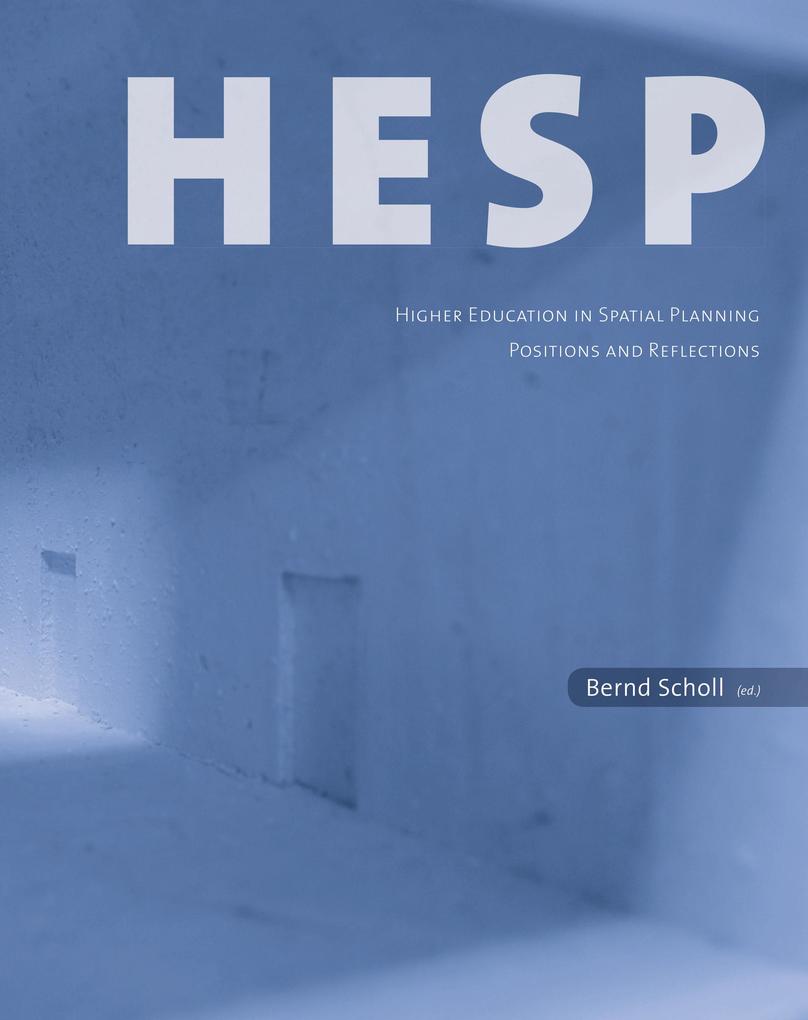Sustainability, complex land use and awareness of spatial quality are keywords for spatial planning on all levels. Therefore, sustainable spatial development is essential for the coming decades. Changes in climate, modes of transportation, demographics and the economic situation are important challenges for all spatially relevant actors.
Land and its many uses is more than the bedrock of our country, it is the foundation for our wellbeing, prosperity and national identity. The pervasive effects of changes in land use and land management emphasise the need for developing effective future policies and strategies. Higher Education in Spatial Planning (HESP) must attract young and enthusiastic people and prepare them for solving complex problems related to this most important and limited resource. Problem-oriented project, respectively, studio-based learning should be the core element of explorative learning.
In a trilogy of symposia, a group of international experts in the field of education and practice of spatial planning discussed important aspects of higher education in spatial planning. This publication presents the results in the form of joint positions and the more personal reflections.
Inhaltsverzeichnis
1;Cover;1 2;Imprint;4 3;Content;6 4;Preface;8 5;Introduction;10 6;Positions;17 6.1;Mission, Goals and Features of Spatial Planning;18 6.2;The Core of the Planning Discipline: New Paradigms, Fields of Knowledge, Capacities, Skills, Maxims and Methods;28 6.3;Demands of Practice;46 6.4;Studio Courses in Spatial Planning: Results of a Survey of European and North-American Schools;54 6.5;Future Directions for Planning Education;64 7;Reflections;73 7.1;Project-Based Learning The Core of a University Education in Spatial Planning and Development;74 7.2;Embedding Education in Strategic Planning in Planning Curricula;88 7.3;Competences, Knowledge and Skills for Planners at Different Educational Levels;100 7.4;Lectures in Spatial Design;106 7.5;Urban and Spatial Planning Higher Educational Requirements from the Perspective of an Independent Planning Office;124 7.6;A Report on Urban Planning Education in the United States;130 7.7;Teaching Spatial Planners: Knowledge, Skills, Competencies andAttitudes Accreditation Standards in the US and Canada;142 7.8;Societies in Transition and Planning Education: The Case of the West Balkan Countries;154 7.9;From Urban Design to Regional Policies: A New Role for Planners in Italy;168 7.10;Building Sustainable Cities Challenges for Professional Education with Special Attention on Poland;178 7.11;The Problems of Planning Education in Russia and St. Petersburg: Heritage, at Present and Perspectives;188 8;Conclusion;195 9;Appendix;199 9.1;I. List of Participants;200 9.2;II. About the Authors;202 9.3;III. Questionnaire for Studios andProjects;210 9.4;IV. Synopsis of Survey Results;212 9.5;Photograph Credits;216










